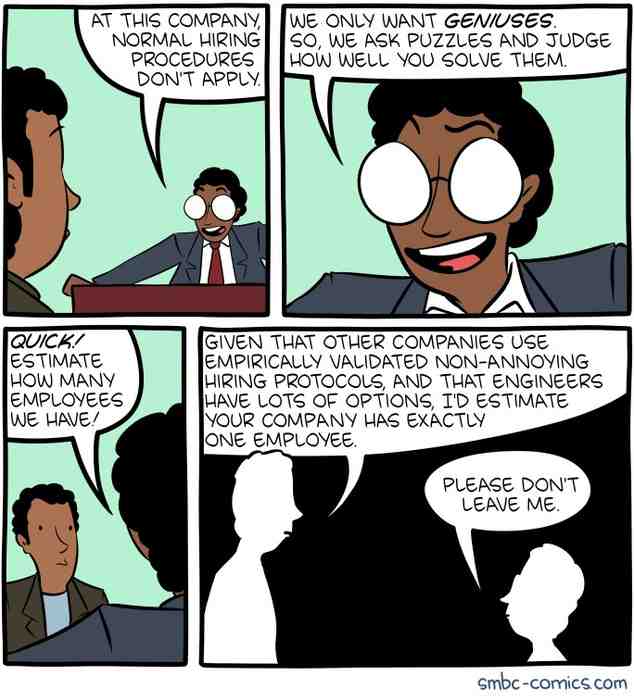What is the role of the only HR person in a startup?
The biggest difference between startups and big corporations? The availability of resources. Startups tend to have them in limited stock, and owing to their restrictive budgets and modest earnings, a one-person HR team is likely to be expected.
And it’s an obvious assumption to make; With a team so small, hiring a department to manage just a few employees sounds impractical. But, a growing startup needs an HR. Now come the next obvious question - Then what is the role of the only HR person in a startup and do they even serve a purpose?
If you’re an HR team of one, your role in the organization would be unclear and all over the place. But your role as HR would permeate across the whole business as you hire, manage talent, and build the business.
So, without further ado, here are the top five lessons on the role of HR for startups when you’re a one-person HR team.
5 lessons for the role of the only HR person in a startup
1. You can’t sprint a recruitment marathon
As the recruiters of the company, the solo HR is often-instructed to risk through hiring at a breakneck speed, sprinting through requisitions and open positions without really taking a moment’s breath to think it through. The temptation to close positions quickly is understandable, but as the only HR person in a startup, it is critical that you slow down the hiring process for startups by using a structured interview approach instead.
Startups in their nascent stage (when they're determining product-market fit and growing the team and product) are the ideal platform for growth and learning. But, coupled with these are the uncertainties, such as layoffs and roles change. High uncertainty and risks leads to a higher attrition rate.
HR in startups must view recruitment not as a futile, blind sprint, but as a gradual marathon. Instead of defining the right role and candidate at the moment of the job interview, it is best to reach a consensus on the essential roles and skills required before the candidate review phase. Before launching a role, startup HR must answer critical questions about the role's business needs, higher objectives, goals, and skills/competencies.
Now how do you get the buy-in from the executives? The truth may sound harsh, but the reality is that some founders don’t prioritize HR as much as they prioritize other functions. And a lot of the times, HR is treated as an auxiliary function. In order be taken seriously, startup HR has to become data-driven to push their ideas, and make it their core strength.
A frenzied hiring approach often leads to bad hiring decisions. Therefore, the role of the only HR person in a startup should be to conduct recruitment like a marathon - sustained and consistent - and support it through a data standpoint. Transforming data into information, with the help of efficient people analytics, and presenting it as insights can enable better decision-making.

2. Fostering culture and inclusivity in the workplace.
To ensure that all employees feel appreciated and supported at work, HR professionals must create an inclusive environment and foster a positive workplace culture. It's essential to develop a diversity, equity, and inclusion strategy and to train all employees on things like unconscious bias, cultural competence, and microaggressions. When HR promotes an inclusive work environment, the bottom line benefits from happier employees, more creativity, and a stronger desire to stick with the company. HR can promote an inclusive culture in startups by fostering open dialogue, respecting various viewpoints, and fostering teamwork and collaboration.
As far as fostering cultures go about, a common definition of organizational culture is that it is the collection of values, expectations and practices that guide and inform the actions of all team members. As startups go through the hyper-growth phase, resources are more often directed to revenue-generating functions, leading to culture training being relegated to the back seat.
Contrary to popular belief, the responsibility of building a great culture does not just lie with the Startup HR alone. It is a collective goal that everyone in the organization must work towards.The role of the only HR person in a startup includes bringing all employees on board, aligning them, and educating them on the organization's culture. Building a healthy organisational culture, on the other hand, necessitates the combined efforts of all members of the organisation.
Managers play the most crucial role of all the others who are crucial to culture building. Since it is immediately apparent that their behavior can have a long-term effect on the institutionalization of target behaviors, employees look to their managers for guidance and modeling of appropriate behavior.

3. Layoffs - a learning experience for solo startup HRs
Businesses let go of their employees for a host of reasons. Whether the vision of the organization changes, there’s a merger or a buyout, or sometimes funding does not come through - whatever the reason, under some circumstances, management needs to let go of its employees. But the critical moment lies in how management embraces this change with empathy and respect for the ones who leave the organization.
Layoffs are an extreme workplace event. As a startup HR, you wouldn’t not want to depend on such an extreme event to teach you and reassess the organization’s values. Rather, it would make more sense to start practicing your company’s values, vision, mission, and culture right from day 1 of the startup. But pivotal moments such as layoffs expose the cracks in the existing system, and you discover the ambiguities in the company’s value systems. Such pivotal moments are the ones that would help shape organizational culture.
In case of founders developing tunnel vision, eager to reach their milestone or raise their next round of funding, an extreme workplace event like a layoff would force them to delve deeper into the existing culture. Therefore, however utopian it may seem, the seeds of a startup culture need to be sown at the beginning.
4. Adopting tech isn’t risky, but being resistant to change is

As the only HR person in a startup, have you ever faced the conundrum of startup founders being “completely open” to new technologies, “but only as long as it doesn’t affect any of our current processes?" Then you are not alone in going through that.
Startups don’t stay stagnant with a small workforce for very long. They grow and eventually require more people to keep it running. As organizations grow, they need new systems, because the existing approaches are going to turn ineffective and not serve well for very long.
As your company grows, you need an effective ATS that would structure your hiring process and help you reach your goal. But how do you get the buy-in from the startup founders? There’s a simple solution to that - The fear of missing out on good candidates.
Founders wouldn’t regret taking the risk of missing out on prime candidates. Old systems and processes aren’t going to work in the current talent market. Data and intelligent technology that allows you to locate the best candidates is the recipe the works.
Being open to new technologies is the way forward. If you want to keep up with market trends, then the organization has to stop being resistant to change. Or you may run the risk of higher attrition.
5. Maintain a beginner’s mindset
As an only HR person in a startup, it is natural to seek advice from fellow HR practitioners and industry experts about the operations of HR. However, it is imperative to not make their thoughts and experiences cloud their own, and be comfortable with making mistakes. The startup HR must be open to new ideas, inquisitive, and resilient for the tough days to become a credible HR.
Best practices might not work for every organization. You need to do your own thing and develop practices that serve in the best interests of you organization. So, while connecting with your peers in the industry is helpful in learning about best practices and current trends in HR, it is equally important think and experiment independently as the lone startup HR.
Set-up regular feedback sessions with your team to gather data that could be utilised to develop new policies and processes. Make employee engagement tools your best friend and use it as a medium to experiment with what serves your organization best. Scrap policies that don’t serve the company and also introduce policies that fit well.
Also read: HR for Startups the ultimate guide
What are the advantages and disadvantages of having only one HR in the workplace?
The role of the only HR in startups can benefit employers as they can help save costs on salaries and benefits provided to employees than having to spend on the larger HR team. As far as for employees, it makes it easier to go to only one person for their HR related questions or concerns as most of the HR functions are centralized. There are other disadvantages, like the fact that the only HR professional may be responsible for all HR functions, including recruitment, employee relations, benefit administration, and more, which can be overwhelming and lead to burnout. With only one HR professional, there is a risk of bias or conflict of interest, particularly if the HR professional is also involved in other aspects of the organization's decision-making.
Final words
So, if you’re the only HR person in a startup, it would be good practice to heed the advice above. Adopt a beginner’s mindset, plant the seeds of a value-oriented culture form Day 1 and assist founders and employees in driving culture building. Manage HR operations efficiently by investing in a good Human Capital Management system and treat the process with patience, because the return of investment on your efforts won’t just be in terms of revenue generated, but in the growth of your people.




































-min%202.avif)













